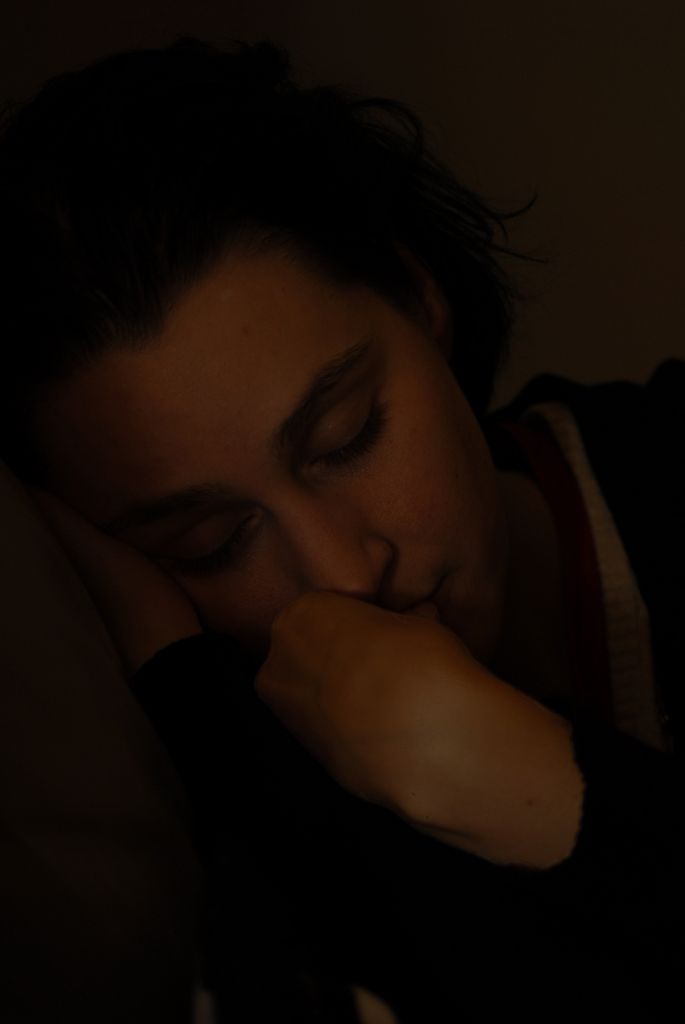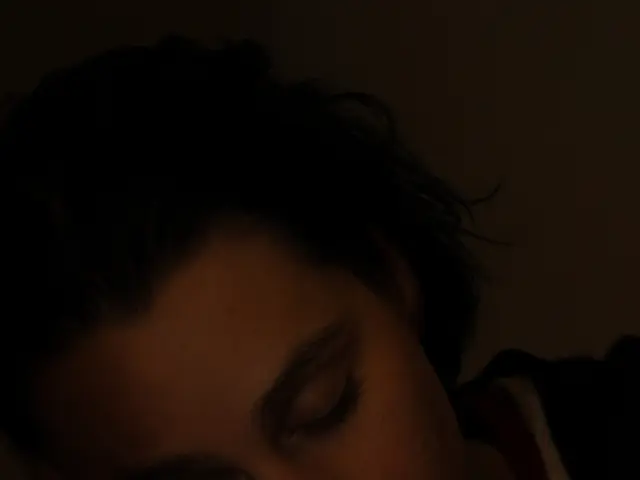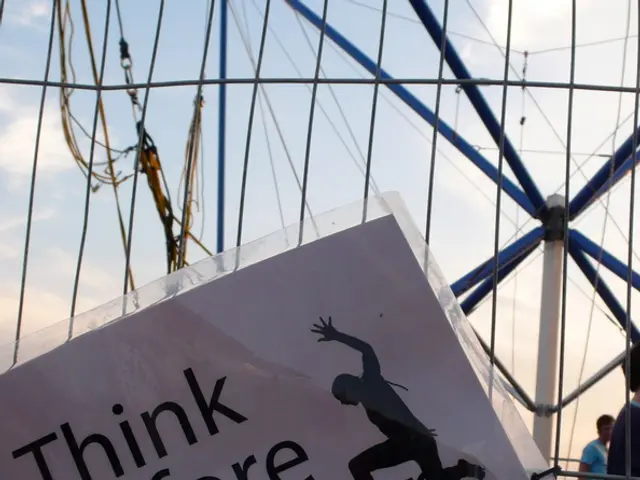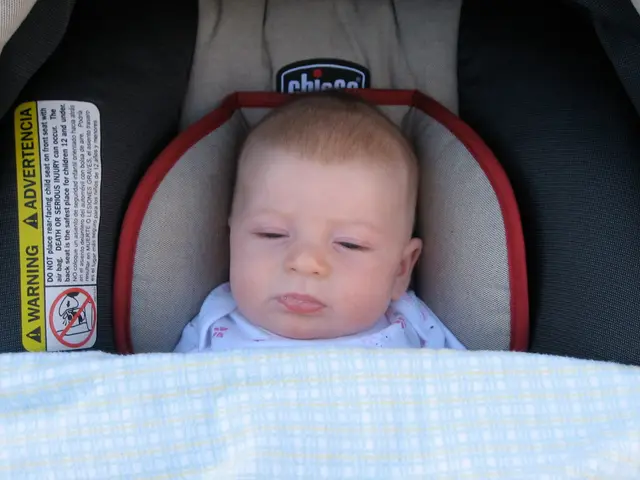"The Wacky World of Dozing Off: Your Brain's Not Just Shutting Down!"
Unusual Events Experienced During the Transition to Sleep
Ever been in bed, all set for slumber, when suddenly your body does a wild spasm like you've tripped over an invisible curb? Or maybe you've felt like you're plunging headfirst into the abyss, only to awaken in a panic? If you've had these experiences, fret not, you're not alone. These bizarre occurrences are not only common but also a captivating peek into the mystifying process of how we drift into dreamland.
We often imagine sleep as the quiet moment our eyelids close, and we drift away in tranquil peace. However, sleep is far more intricate than that; our bodies and minds undergo a series of intricate stages, and within those stages, some strange stuff happens. From those twitchy muscles to dreams that start before you give yourself over completely to sleep, the journey from consciousness to unconsciousness is anything but dull.
Let's dive into some of the most peculiar, yet completely natural, happenings as you bid adieu to wide-awakeness.
"Jolt-a-Wakey": The Involuntary Jolts of Sleep!"
You know the sensation-you're on the brink of sleep and all of a sudden, your body jerks, waking you up with a start. This abrupt muscle spasm is known as a hypnic jerk, and while it might seem like your body is trying to sabotage sleep, it's actually part of the sleep process. But why do these sensations occur?
According to experts, hypnic jerks happen during the body's transition from being awake to entering the initial stages of non-REM sleep, where the body starts to relax and muscles loosen up[1]. However, the precise reason behind these jerks remains unclear, with theories suggesting that the brain misreads muscle relaxation as a fall, triggering the jerk as a means to "save" yourself[2].
A study published in the Journal of Clinical Sleep Medicine found that up to 70% of individuals experience hypnic jerks, frequently during periods of stress or sleep deprivation[1]. So, while it may be startling in the moment, it's generally nothing to worry about.
Quick Tip:: If you're getting these jerks frequently, it might be due to poor sleep habits or heightened stress levels. Try unwinding before bed with relaxation techniques or better sleep practices to reduce their occurrence.
"Trapped in the Twilight Zone": The Frightening Sensation of Sleep Paralysis!"
Close your eyes and picture this: You awake in the dead of night, unable to move a muscle, as if you've been frozen solid like an ice sculpture. You're fully conscious, aware of your surroundings, but your body refuses to respond. This chilling experience is known as sleep paralysis, and though it may seem scary, it's quite common.
Sleep paralysis occurs during the REM (Rapid Eye Movement) stage of sleep, when your brain is active, dreams take place, and your body is paralyzed to prevent physical enactments of those dreams[3]. During sleep paralysis, however, your mind awakens before your body has completed the process of "waking up" from the temporary paralysis.
As per a study published in the Sleep Research Society, around 8% of the population experiences sleep paralysis at least once in their lifetime[3]. It's often accompanied by hallucinations, a feeling of pressure on the chest, and even the perception of an unseen presence in the room[3]. Though it can be unsettling, sleep paralysis is generally harmless, but it may indicate underlying sleep disorders like narcolepsy or sleep apnea[5].
Quick Tip:: Adopting good sleep hygiene, such as maintaining a consistent sleep schedule, avoiding caffeine late in the day, and managing stress, can help minimize sleep paralysis episodes[5].
"The Sensation of Falling: Dreams That Begin Before You're Completely Asleep!"
Have you ever had the sensation of falling before slipping into sleep? As your body starts to relax, you might feel like you're plummeting into an abyss. This sensation, known as a hypnagogic jerk, is closely related to the hypnic jerk but happens during a slightly different stage of sleep.
As your body relaxes, the sensation of floating or falling can trigger the release of adrenaline, causing your body to jolt awake[6]. This falling sensation is thought to be linked to your body's vestibular system, which regulates balance and spatial orientation[6]. As you begin to relax, your brain might misinterpret the bodily sensations as falling, causing your body to "snap" back to full consciousness.
This phenomenon is most common during the hypnagogic state, which is the transition period between wakefulness and the start of sleep[6]. Researchers from the National Sleep Foundation have found that individuals who experience stress or anxiety are more likely to have these falling sensations, making sense given that our brains may be overworking when we try to rest[6].
Quick Tip:: If falling sensations are a recurring issue, try incorporating relaxation exercises like deep breathing or meditation before bed to calm your mind.
"Vivid Dreams: Why Dreams Start So Quickly After Drifting Off!"
Most of us associate dreaming with the later stages of sleep, particularly during REM sleep. But did you know that vivid dreams can actually start as soon as you begin to drift off? These early-stage dreams, known as hypnagogic hallucinations, happen when your mind starts to slip into the sleep cycle but hasn't fully shut off yet. As your body unwinds, your brain starts generating dream-like images, sounds, and disconnected thoughts.
Researchers have noted that hypnagogic hallucinations can involve visual, auditory, or even tactile sensations, ranging from hearing someone whisper your name to feeling slight vibrations on the skin[4]. Although these experiences may seem like the product of an overactive imagination, they're a natural part of the sleep transition process. According to studies published in the Journal of Sleep Research, people who have irregular sleep schedules or experience stress are more likely to have these vivid experiences[4].
Quick Tip:: If these vivid dreams disrupt your slumber, try sticking to a consistent bedtime and reducing screen time before hitting the sack, as blue light can interfere with your natural sleep rhythm.
"These hypnagogic hallucinations, which can involve vivid dreams starting as soon as you begin to drift off, are related to the science behind sleep and health-and-wellness. They occur during the hypnagogic state, the transition period between wakefulness and the start of sleep, and are a result of the brain generating dream-like images, sounds, and disconnected thoughts as it unwinds."
"As you delve further into the intricacies of sleep, you may find yourself face-to-face with the peculiar phenomenon of hypnic jerks. These involuntary muscle spasms, happening during the body's transition from wakefulness to the initial stages of non-REM sleep, can be startling, but they are a natural part of the sleep process and may be experienced by up to 70% of individuals, especially during periods of stress or sleep deprivation."








